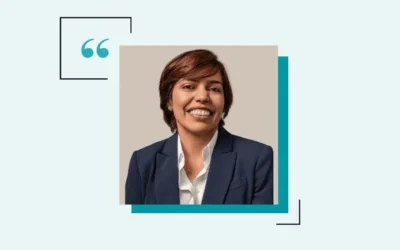While Brad Dodson enjoyed his decade-long work in financial services for Fortune 500 insurance provider Chubb in his home state of South Carolina, he longed for work that was more closely aligned with his personal values and interests.
Certain he could use his financial know-how to help provide affordable housing in urban areas, Dodson enrolled in a master’s in urban and regional planning program at the University of New Orleans.
An outdoor enthusiast as well as an urbanist, Dodson next joined the City and County of Denver, where he could apply his finance and urban planning expertise in a region that was ideal for his recreational interests. After five years overseeing multifaceted public-private redevelopment projects, Denver’s mayor gave him responsibility for managing complex financial stacks of public and private funding for the nearly billion-dollar National Western Center redevelopment program.
Five years later, Denver-based Urban Land Conservancy (ULC) tapped Dodson to be its CFO. There, he oversees the finances of both the nonprofit and its affordable housing development projects.

Brad Dodson
CFO, Urban Land Conservancy
First CFO position: 2022
Notable previous employers:
- City and County of Denver
- University of New Orleans
- Chubb
This interview has been edited for brevity and clarity.
SANDRA BECKWITH: Why did you add a master’s in urban and regional planning to your MBA and undergraduate business administration degrees?
BRAD DODSON: I had this nagging sense that finance could be a force for good that could create a more positive social impact than the work I was doing for a decade with Chubb.
Already an urbanist, I arrived at the University of New Orleans shortly after Hurricane Katrina hit. Through my work there to create a community development finance laboratory for organizations working on recovery, I became passionate about sustainable urban development and creating communities that were resilient, inclusive and able to meet the needs of the people who live there today as well as in the future.
The CFO role at Urban Land Conservancy seems like a perfect fit for you. How did this match-up happen?
DODSON: I first learned about ULC more than a decade ago when I was in New Orleans and was impressed by its innovative work. When I came to Denver, the two years I planned to stay with the City and County of Denver turned into 10 because I loved the administration and got to work on exciting, transformational redevelopments. At the same time, I was closely following ULC’s work.
“As a CFO, the days are hard, the weeks are long. So, when there’s that alignment between the work and your values, it adds extra fuel to your motivation.”

Brad Dodson
CFO, Urban Land Conservancy
Just by coincidence, when my role in a large, multi-year redevelopment project with the city, Colorado State University, and the National Western Stock Show was wrapping up, I learned that ULC was looking for a CFO. I was drawn to the idea of leading financial strategies for an organization that impacted the community in a much more direct way than I was able to at the City.
How does your background affect how you do your job at ULC and how might it differ from someone who came to the CFO role there with a different one?
DODSON: I would characterize my experience as project finance more than corporate finance. It includes project management, urban planning and stakeholder engagement, which gives me a more holistic view of real estate development.
For example, when we’re developing affordable housing, we’re also creating community hubs that provide essential services, job training, social support, and access to transportation and good schools. It requires a much broader skill set than a traditional finance professional might have.
What part of the CFO’s job is more difficult for you because of your background or experience?
DODSON: Navigating the complexities of nonprofit financial regulations was new to me, so there was a learning curve with that.
What’s the easiest?
DODSON: It’s structuring financial relationships and deals that balance financial viability with community impact.
For example, we just broke ground on a new affordable housing development with 102 units. To make that happen, we had 12 funding sources, each with an individual loan agreement or financial contract stating different ways the money could be applied and when.
Bringing all these disparate sources together to make a whole is something that comes naturally to me because of my experience.
Looking back on your entire career, what do you think was the most pivotal moment … or what “aha” has had a significant impact?
DODSON: The 2008 financial crisis was an inflection point early in my career. I was working for a Fortune 500 company when that event revealed to me the dangers of chasing short-term profits over long-term societal well-being.
Too often, displacement is a byproduct of real estate development. At ULC, we focus on in-placement, rather than displacement, and build inclusive communities that are resilient and can stand the test of time.
What advice would you give to others in finance hoping to become CFOs?
DODSON: Align the work with your passion and values.
As a CFO, the days are hard, the weeks are long. So, when there’s that alignment between the work and your values, it adds extra fuel to your motivation. It helps you focus and leads to seeing your career more as a meaningful journey, rather than a slog that you have to get through.





